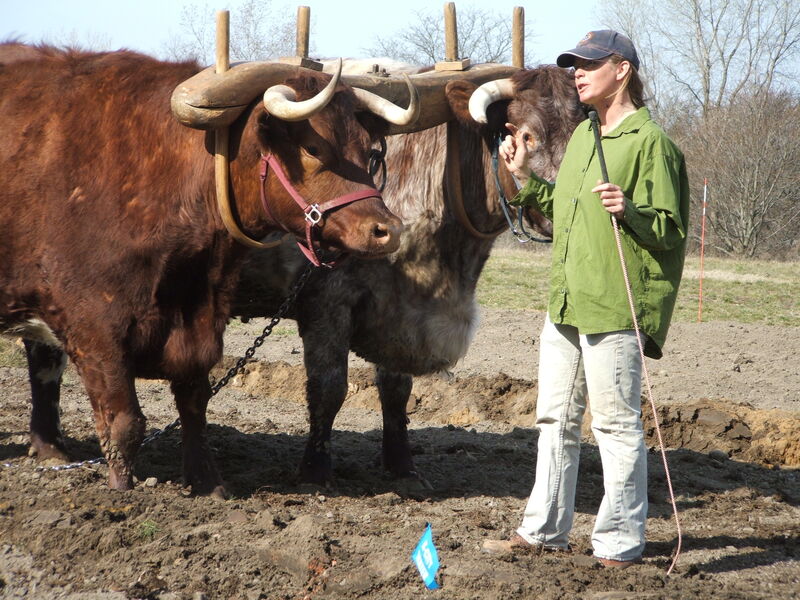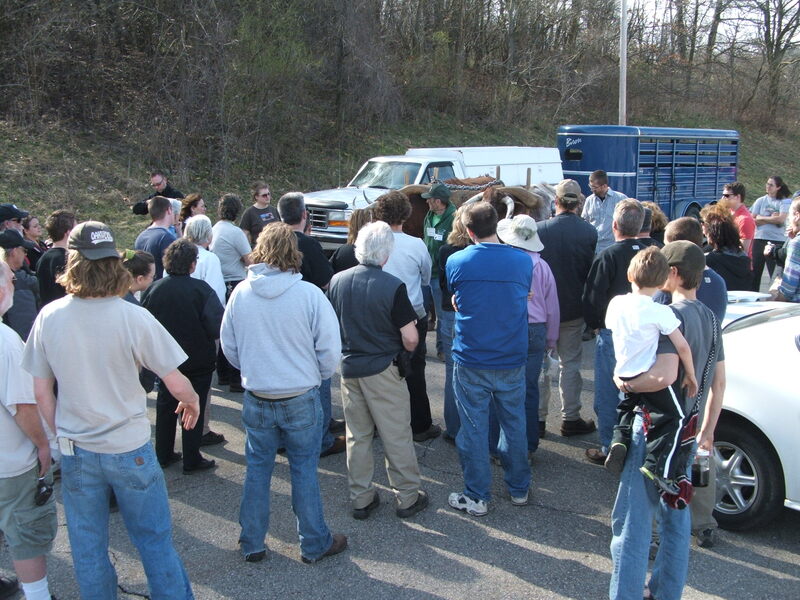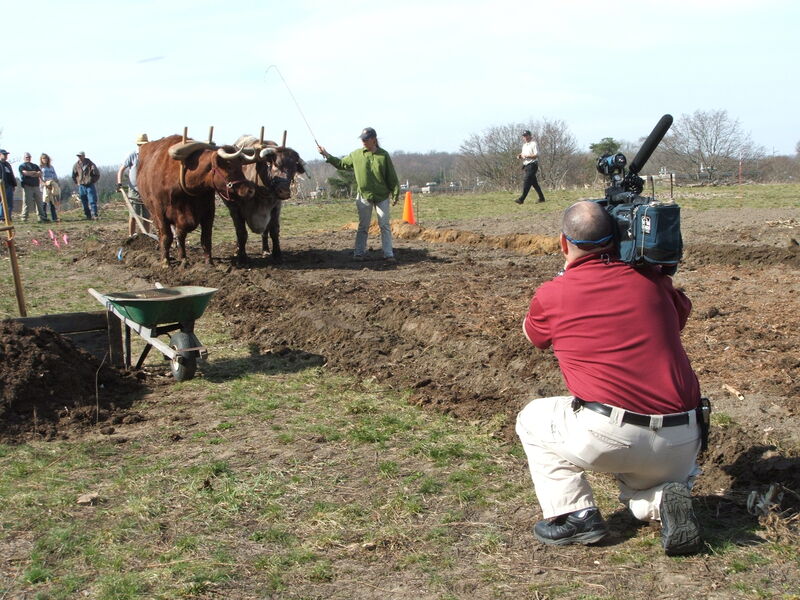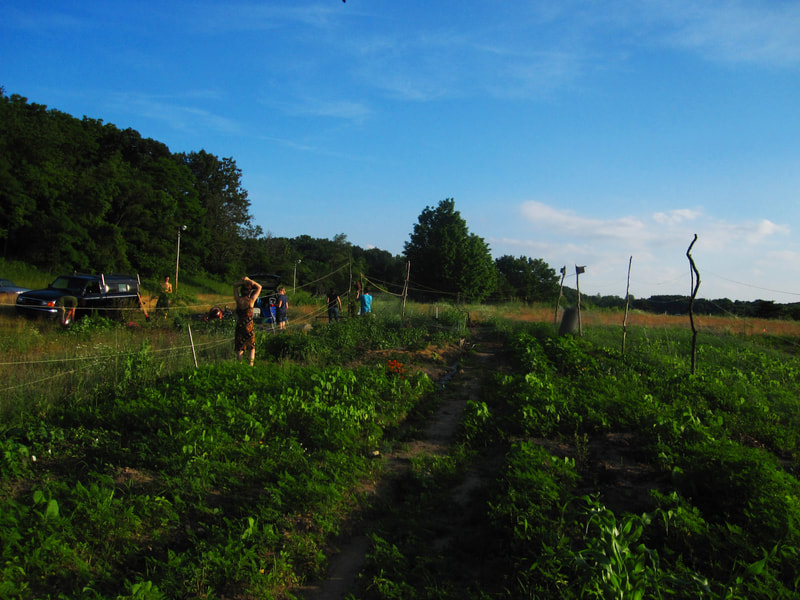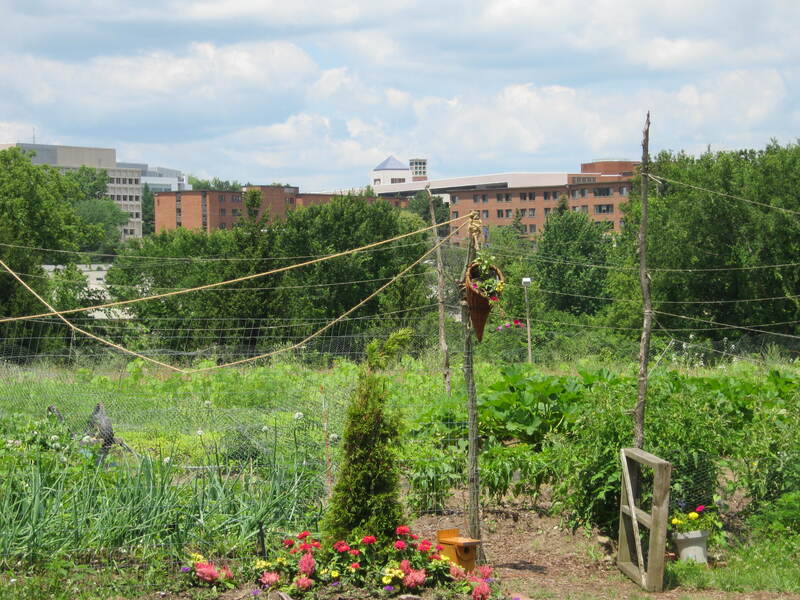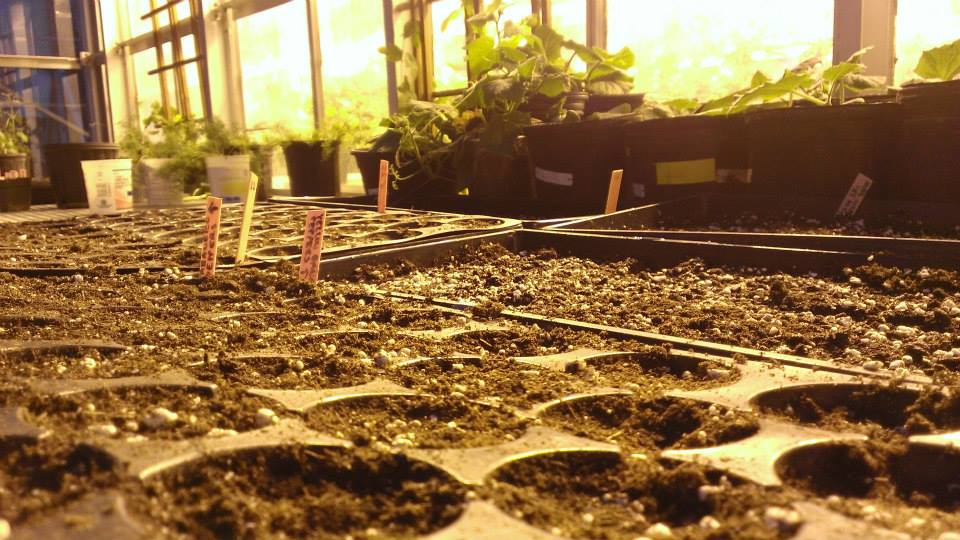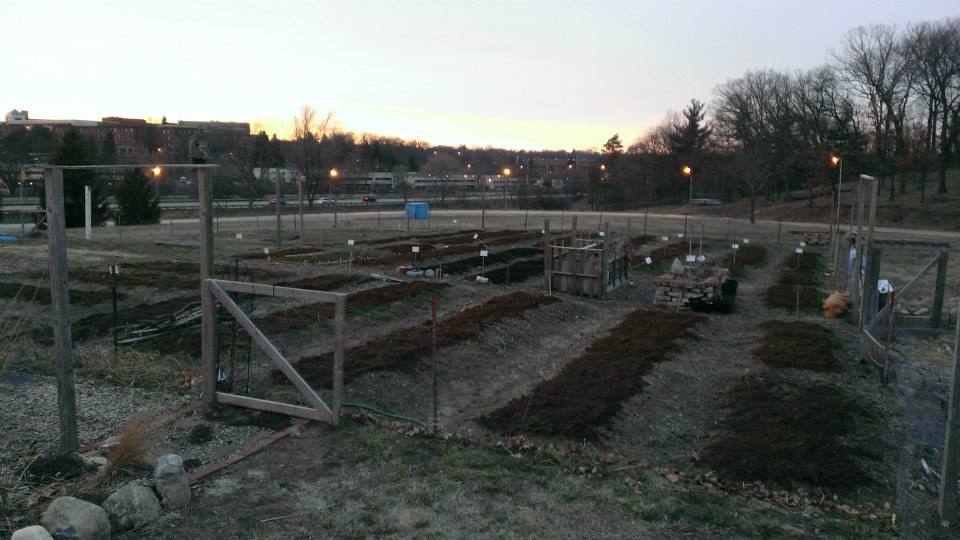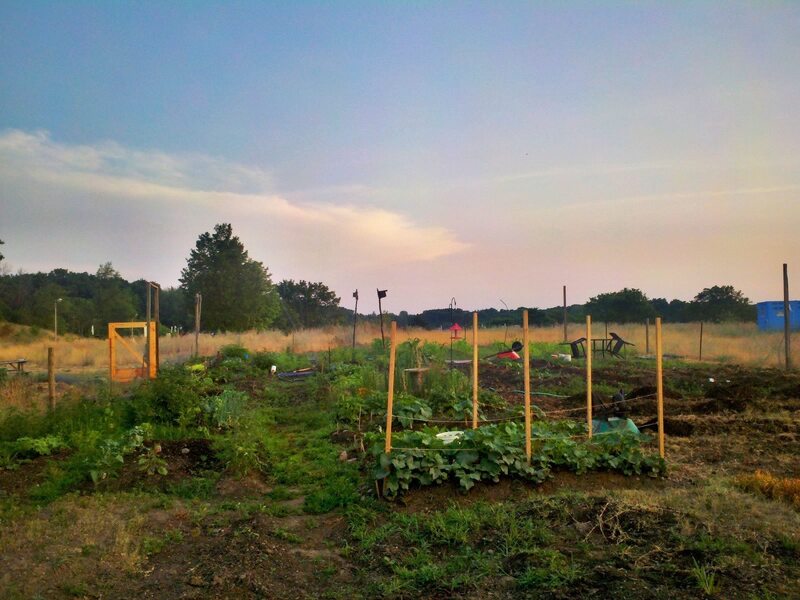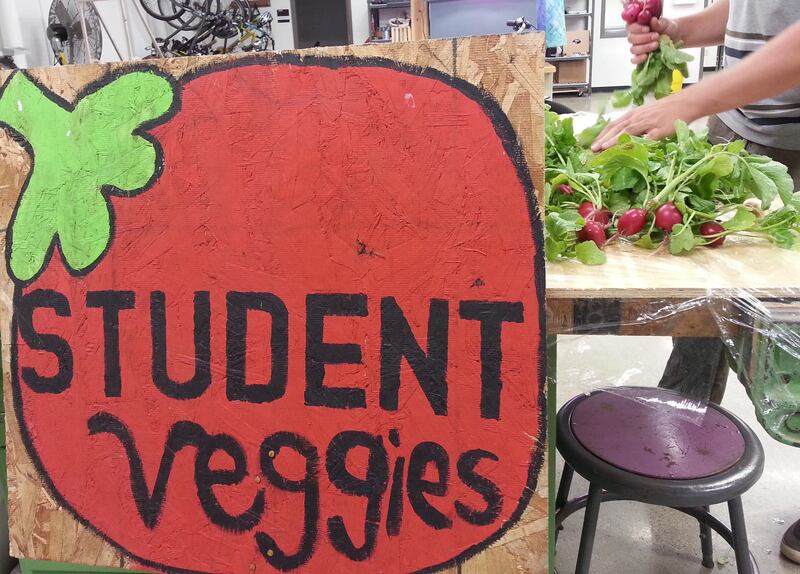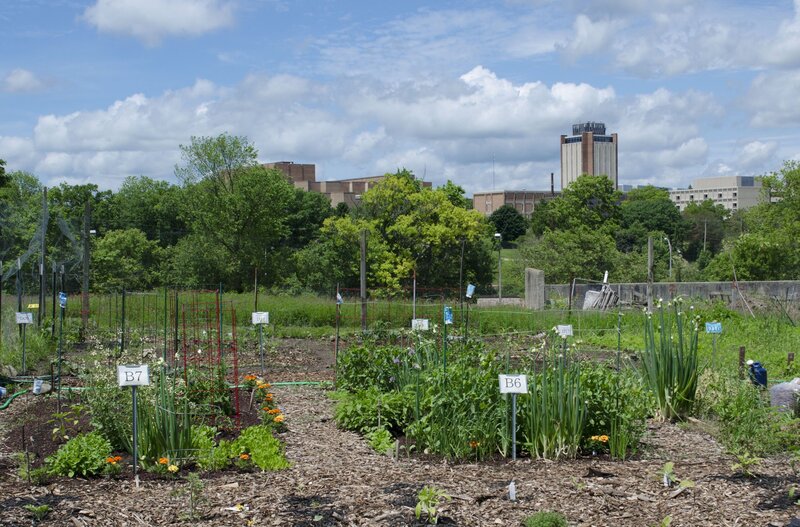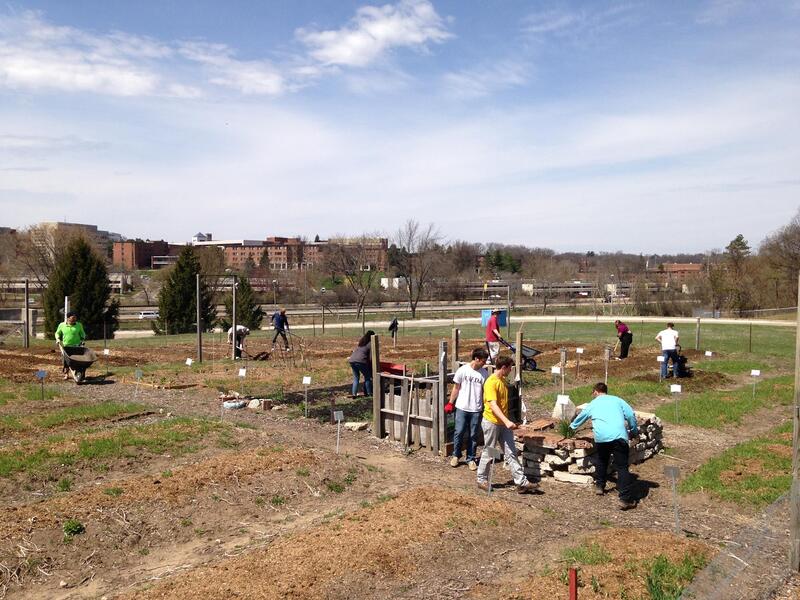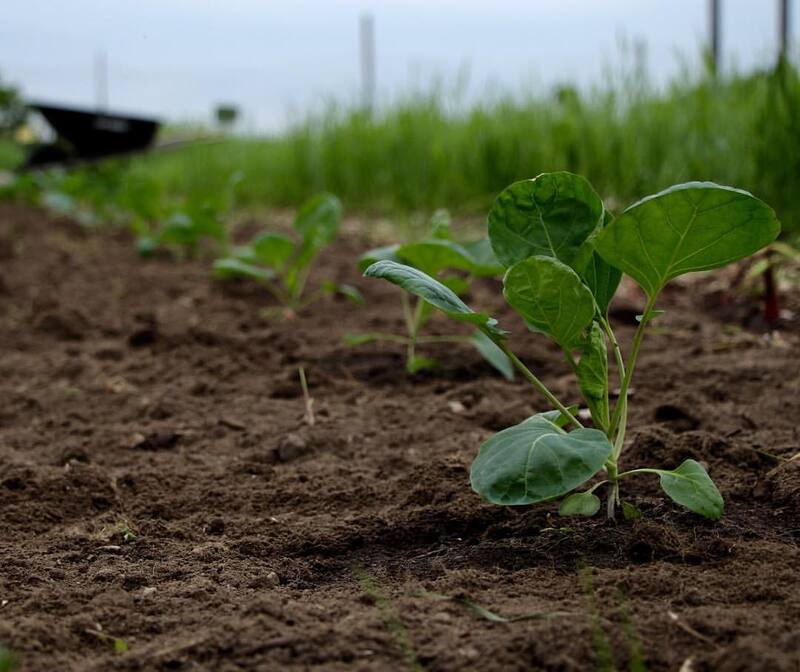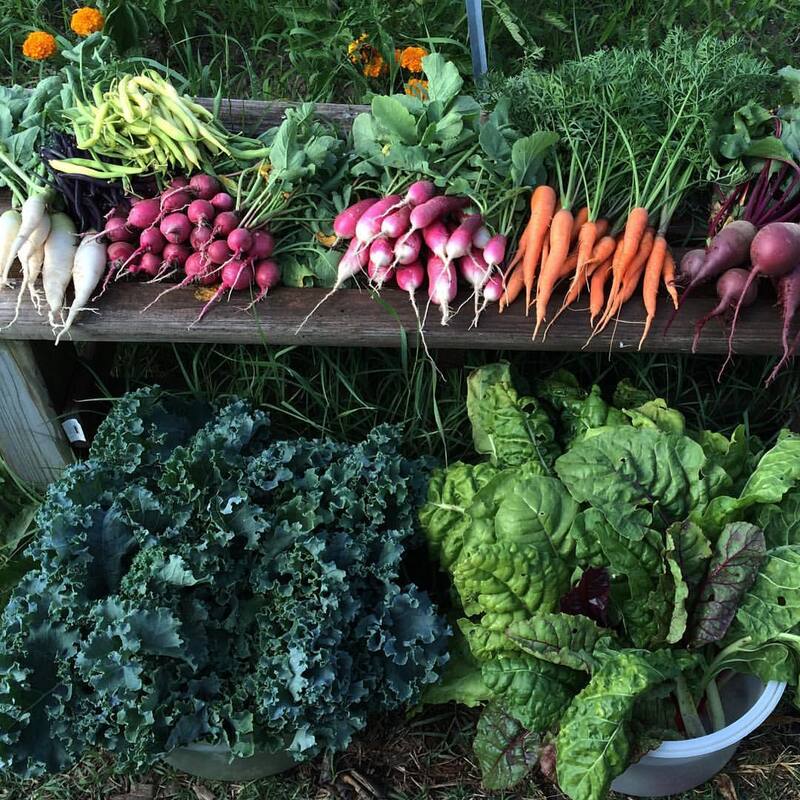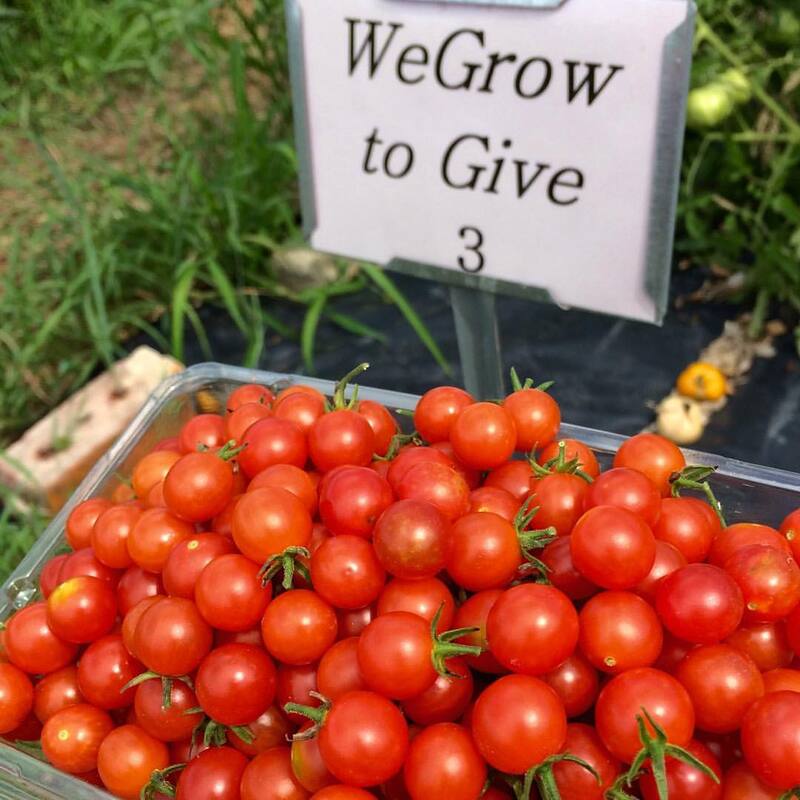The garden was established in 2010 by a Western Michigan University (WMU) student group called the Student Garden Organization (SGO). In April 2010, the SGO held an event to prepare the land using oxen lead by experts in draft animal power from Tiller’s International, a local non-profit. This first season set the vision for the community garden as a place for students, faculty, and staff to use the space to experiment with projects related to gardening, permaculture, and community engagement. The garden is at the outskirts of campus, located on a wide-open area on a hill giving gardeners a perfect view of clear blue skies and the opportunity to experience countless summer sunsets.
Following years saw a few changes in leadership, including partnerships with Students for a Sustainable Earth (SSE), Biology Club (BioClub), and the first instance management lead by the Office for Sustainability. From 2014 to 2018, the garden was then run for many years by a group of dedicated students and alumni, who started managing activities at the garden with funding from a Student Sustainability Grant. They implemented a number of partnerships with Kalamazoo community organizations including running the We Grow to Give program. In 2019 the Office for Sustainability took over management again, until 2020 when the historical COVID-19 pandemic uprooted their plans to support the garden in 2020. Mid-season in 2020, a collective group of returning gardeners worked together to keep the site safely operational at a limited scale. Since 2021, management is officially led by Dr. Johnson Haas, a dedicated returning gardener and faculty member at WMU.
Year to year, this space brings back many gardeners comprised of WMU students, staff, faculty, alumni, and honored Kalamazoo community guests. Since its initial establishment in 2010 the garden has seen incremental improvement, including installation of a taller fence, expansion of the garden footprint, creation of an accessible raised bed, construction of an open-air shelter, and planting of community raspberry patch. All these improvements would not have been possible without the countless hours of effort from volunteers and leadership from garden managers. Thanks their dedication, the WMU Community Garden is a place where gardeners can find both solace and community in years yet to come.
